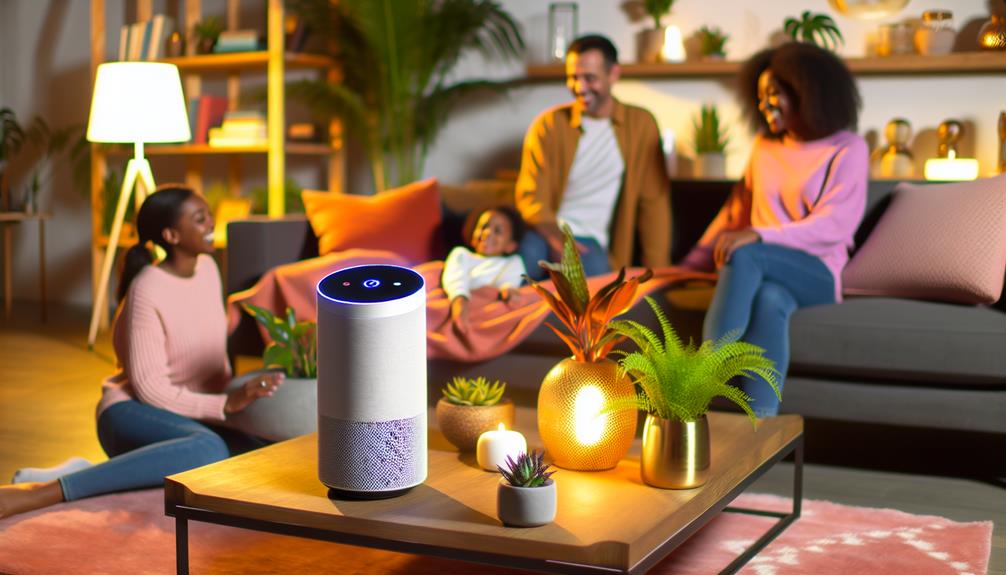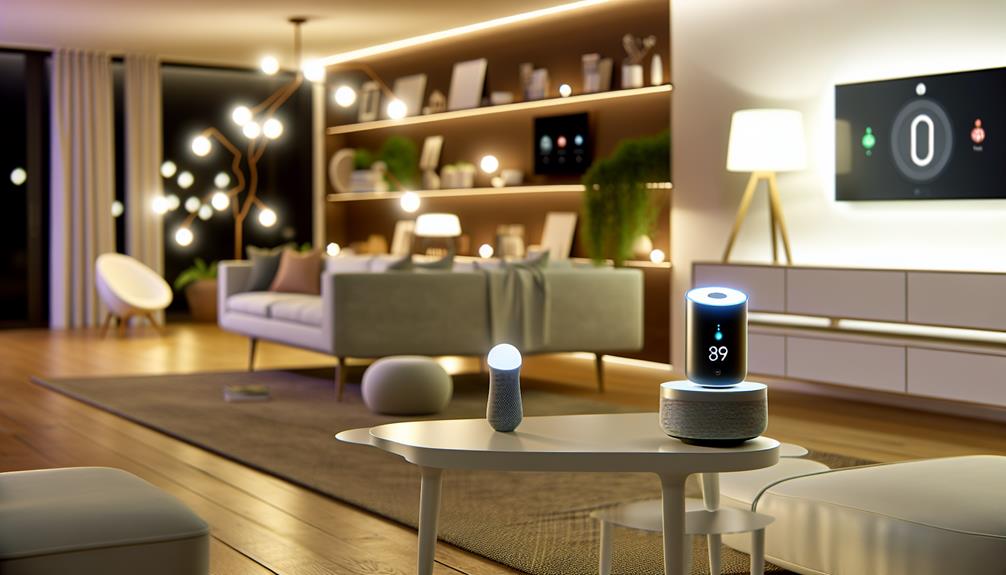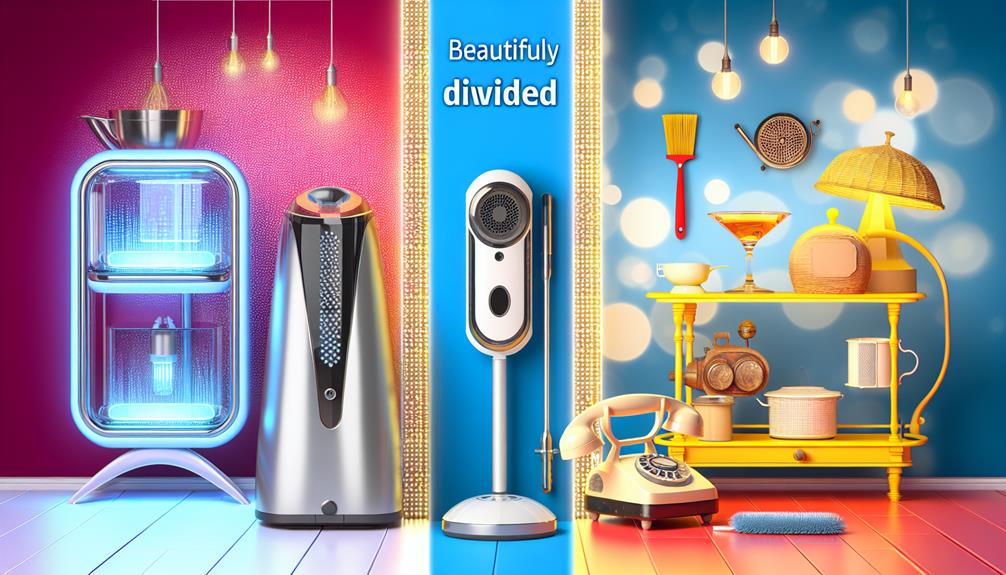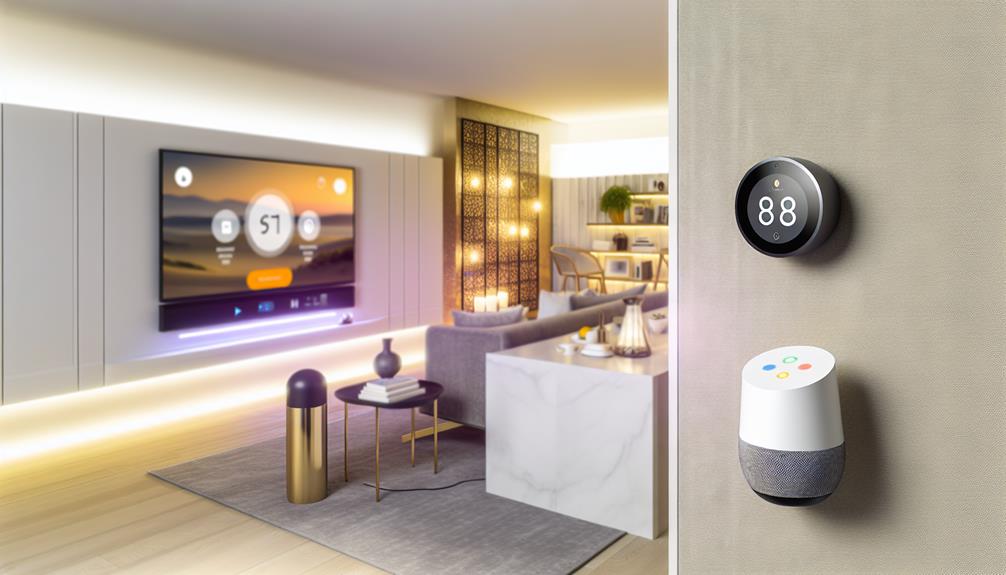5 Advantages of AI-Powered Home Assistants
The integration of AI-powered home assistants into modern living spaces presents a range of advantages that merit careful consideration. From enhancing daily convenience through voice-controlled interactions to optimizing energy efficiency and personalizing user experiences, these technologies have the potential to markedly transform our households. In addition, their ability to seamlessly connect with various smart devices and provide advanced security features adds layers of functionality that can enhance overall home management. Yet, the implications of these advancements extend beyond mere convenience, prompting a closer examination of their broader impact on our lives.
Key takeaways
- AI-powered home assistants enhance daily efficiency by managing schedules, controlling smart devices, and automating repetitive tasks through voice commands.
- They optimize energy consumption by adjusting heating, cooling, and lighting based on user routines, reducing utility bills.
- Personalized user experiences are created as assistants learn individual preferences, adjusting settings for lighting, temperature, and music accordingly.
- Seamless integration with various smart devices allows for intuitive control across different brands from a single interface.
- Advanced security features, such as facial recognition and real-time alerts, enhance home safety and keep homeowners informed of unusual activity.
Enhanced Convenience
AI-powered home assistants have revolutionized the concept of convenience in modern households, with studies indicating that 70% of users experience enhanced daily efficiency. These devices utilize advanced voice recognition technology, allowing users to interact seamlessly with their home environments. By simply speaking commands, individuals can manage their schedules, control smart home devices, and even order groceries, all without lifting a finger.
Task automation is another key feature that elevates the user experience. With the ability to program routines, home assistants can take over repetitive tasks such as adjusting lighting, setting thermostats, or playing music at designated times. This not only saves time but also fosters a sense of belonging by creating personalized living spaces that reflect individual preferences.
Moreover, the convenience offered by these smart devices encourages family collaboration and engagement. By streamlining daily chores and activities, home assistants promote a more organized and harmonious household.
As technology continues to evolve, the enhanced convenience provided by AI-powered home assistants will certainly redefine how we navigate our daily lives, making them an essential part of modern living for those who seek both efficiency and comfort.
Improved Energy Efficiency
The integration of smart technology in home assistants plays a pivotal role in enhancing energy efficiency within households. By utilizing advanced algorithms, these devices optimize energy consumption, allowing families to reduce their environmental footprint while also saving on utility bills.
One of the key features that contribute to this improved efficiency is smart scheduling. Home assistants can learn the daily routines of their users and adjust heating, cooling, and lighting accordingly. For instance, they can lower the thermostat during the day when no one is home, ensuring energy is not wasted. This tailored approach not only fosters comfort but also promotes responsible energy use.
Additionally, energy monitoring capabilities provide real-time data on consumption patterns, enabling homeowners to make informed decisions. By identifying high-energy usage periods or devices, families can implement changes that lead to significant savings.
Together, these functionalities create a synergistic effect, reinforcing a sense of community responsibility toward sustainability. As more individuals adopt AI-powered home assistants, the collective impact on energy efficiency can be profound, making homes smarter and more environmentally friendly.
Embracing such technology not only enhances personal comfort but also connects users to a broader movement for energy conservation.
Personalized User Experience
Home assistants today are revolutionizing the way individuals interact with their living spaces by offering a personalized user experience that caters to unique preferences and lifestyles. Through advanced user preference learning, these AI-powered devices adapt over time, refining their responses and recommendations based on individual habits and choices. This dynamic capability allows for customized interactions, ensuring that each user feels understood and valued in their environment.
For instance, a home assistant can recognize the time of day and adjust lighting, temperature, or even music to align with the user's routine and mood. By analyzing data over time, these assistants not only remember specific requests but also anticipate future needs, creating a seamless and intuitive atmosphere. This level of personalization fosters a sense of belonging, as users feel that their home is responding to their unique identity.
Moreover, the ability to set preferences for various family members further enhances the experience, promoting inclusivity and understanding within the household.
As technology continues to evolve, the promise of personalized user experiences in AI-powered home assistants becomes an essential aspect of modern living, enriching daily life and nurturing connections among users.
Seamless Integration With Devices
Frequently, modern home assistants demonstrate remarkable capabilities in seamlessly integrating with a wide array of smart devices. This integration enhances the overall user experience, making it easy for individuals to connect and control their home environments with minimal effort. Voice recognition technology plays a pivotal role in this seamless interaction, allowing users to issue commands naturally and intuitively. With just a spoken phrase, users can manage lighting, temperature, and entertainment systems, creating a harmonious living space that reflects their lifestyle.
Moreover, the multi-device compatibility of AI-powered home assistants guarantees that users can connect various brands and types of devices, breaking down barriers between different ecosystems. Whether it's a smart thermostat, security camera, or lighting system, these assistants can unify control through a single interface, promoting convenience and efficiency.
This cohesive environment fosters a sense of belonging, as users can customize their homes to suit individual preferences and needs. As technology continues to evolve, the ability to integrate multiple devices seamlessly will only become more sophisticated, further enriching the home experience for families and individuals alike.
The future of smart living is not just about automation; it's about creating a cohesive, connected lifestyle.
Advanced Security Features
Advanced security features have emerged as a critical component of AI-powered home assistants, offering users peace of mind in an increasingly connected world. These systems utilize cutting-edge technology, including facial recognition, to enhance home security and provide a safer living environment for families.
Facial recognition capabilities allow home assistants to identify authorized individuals, guaranteeing that only those with permission can access your home. This not only protects against potential intruders but also fosters a sense of community, as family members and trusted friends can be recognized and welcomed seamlessly.
In addition to facial recognition, AI-powered home assistants deliver real time alerts to keep users informed of any unusual activity. Whether it's a package delivery or a potential security breach, these alerts guarantee that homeowners are always in the loop, enabling them to respond swiftly to any situation.
Frequently Asked Questions
Can AI Home Assistants Learn and Adapt to My Preferences Over Time?
Yes, AI home assistants can learn and adapt to your preferences over time, fostering personalized interactions and enabling continuous improvement. This dynamic capability enhances user experience, creating a sense of belonging and connection within your home environment.
Are Ai-Powered Assistants Compatible With All Types of Smart Home Devices?
AI-powered assistants generally offer extensive device compatibility, facilitating seamless smart home integration. However, specific compatibility can vary based on manufacturers and standards, necessitating careful evaluation to guarantee ideal harmony within your smart home ecosystem.
How Do AI Assistants Handle Multiple Users in One Household?
In a household bustling with diverse voices, AI assistants employ user recognition and voice profiling to tailor interactions. This sophisticated technology guarantees personalized experiences, fostering a sense of belonging and enhancing the harmony of shared living spaces.
What Happens if My Internet Goes Down?
If your internet goes down, many AI assistants retain limited offline functionality, allowing basic voice recognition commands to operate. However, advanced features typically rely on internet connectivity, reducing overall capability until the connection is restored.
Are There Privacy Concerns With Using AI Home Assistants?
Approximately 70% of users express concerns about privacy with AI home assistants. Issues surrounding data security and user consent are paramount, as these devices constantly collect information, potentially compromising personal privacy and security without adequate safeguards.



